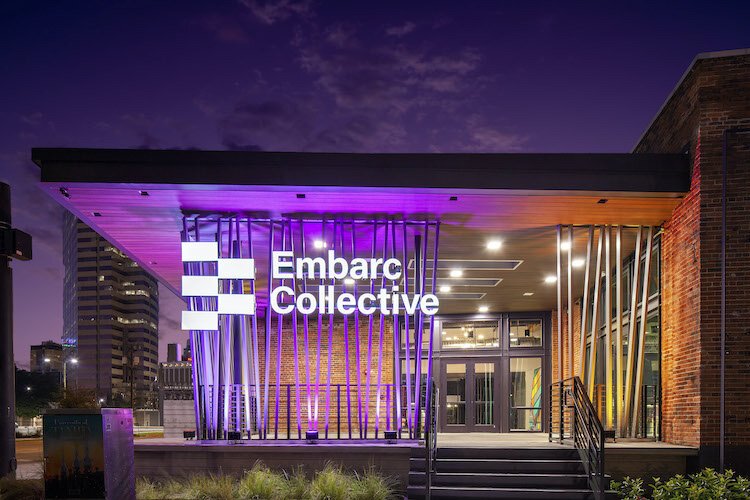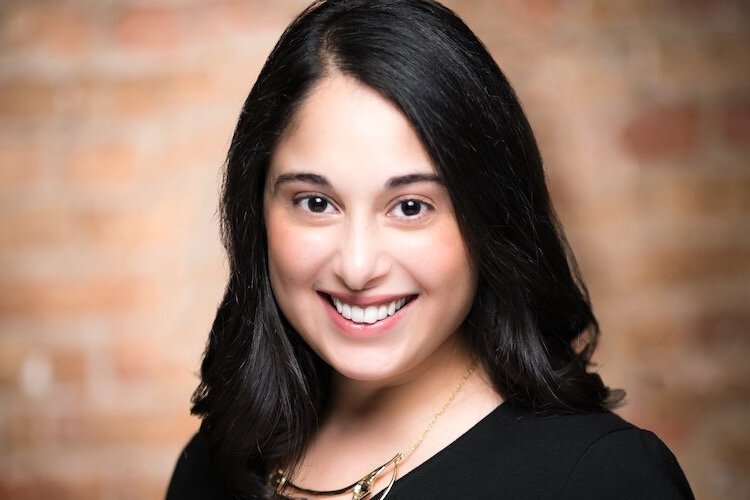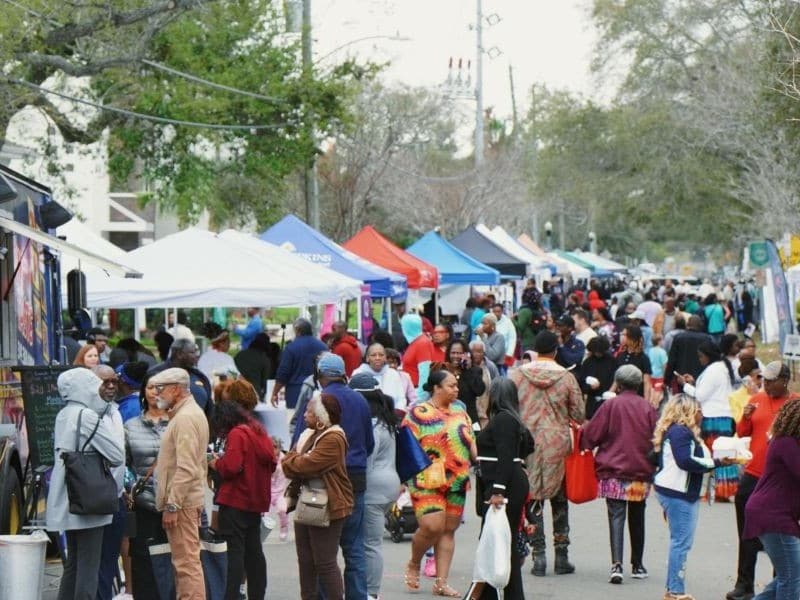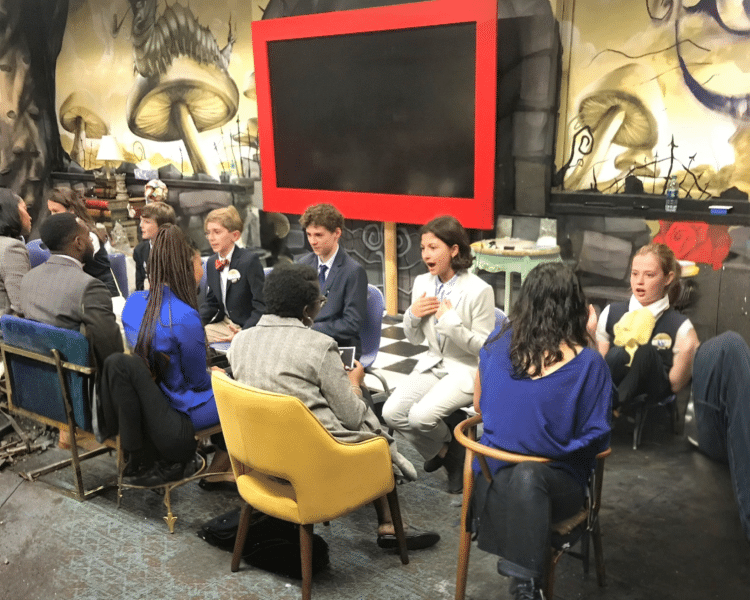Redefining our environment: Space is not place
In a Commentary for 83 Degrees, Embarc Collective CEO Lakshmi Shenoy writes about the challenges and opportunities created in the Tampa Bay Area for the growing tech ecosystem post-pandemic.
I moved to the Tampa Bay Area from Chicago to launch Embarc Collective, a startup hub in downtown Tampa where early-stage technology and tech-enabled startups can work with experienced advisers, attend regular group programming, access a driven peer community — all in one central place.
Even before the pandemic, I was hesitant to center Embarc Collective’s story solely around our 32,000-square-foot physical space, which opened in January 2020. Instead, I chose to focus on what the space enabled: a community of driven entrepreneurs, the efficiency of a central landing zone of resources, and a place to be discoverable when investors, customers, and other stakeholders visited our region.
Then came the pandemic. Like most, we carried on our coaching and programming virtually and temporarily closed our facility. When we came back to our hub in June after implementing new COVID-19 safety protocols, I saw Embarc Collective shift — from a space where you work to a place where you have purpose.
Resident startups moved from being at our space at all hours of the day to treating Embarc Collective as a destination — a place to present to investors, meet with advisors, and meet in-person with their teams at different points in the week.
I like this shift — it makes the time at Embarc Collective more meaningful, a place with purpose. It encourages our members to be intentional with their time and in turn, more successful with their ventures.
People want to discover new hubs
If you’re stuck at home, does it matter if you’re in San Francisco or a small town? It truly doesn’t. We’re seeing individuals who are living in dense metros rethink where they want to build their lives. Cities in which you can live life outdoors much of the year are getting attention. We’re seeing Miami receive attention after prominent venture capitalists, including Keith Rabois and David Goldberg, made the move to South Florida. In the Tampa Bay region, we have similar (but quieter) momentum. We are seeing an increasing number of transplants move to our region from companies such as Snap, GrubHub, and Coinbase.
Why are they moving here? The case is more than financial. In Florida, you feel like you can lead a full life, which is now amplified because of the pandemic. We now are living in a world where ambitious professionals can still maintain their upward career trajectory outside of a major metro.
We now have the option to work remotely and re-consider 9 months stuck inside in a small, expensive Manhattan apartment (avoiding the cold) and live in a place where you can and want to be outdoors. Beyond livability, people migrating from dense hubs are looking to be early adopters in what were overlooked markets pre-pandemic.
Florida’s tech scene offers that opportunity — while we have a strong and growing tech infrastructure across the state, there is certainly room for more voices, more capital, and more activity. But as we grow and while this migration occurs, let’s ensure we keep diversity and inclusivity in focus.
Women lost tremendous traction this year
It felt like overnight that we turned our abode into a place where we lived, learned, and worked. This meant that as the person on the other end of your Zoom, I met your family, pets, and experienced other household moments with you. But I also watched new stresses emerge, specifically for women, who have had to take on the manager role to ensure their immediate environment could be a home, school, and office all at the same time. I didn’t know if my observations were purely anecdotal until I read about the job claims for December 2020, in which women made up the entirety of job loss in December (156,000 jobs). And the vast majority of those losses impacted Black and Latina women.
Deliberate efforts and initiatives will have to take place post-pandemic to ensure that women are able to resume building their careers. That will take retraining and working with companies to build opportunities to bring women back to work. If you’re building a program to create solutions here, please reach out to me to see how Embarc Collective can partner.
Moving into 2021, I’m seeing these changes as opportunities that can fuel the growth of Florida and the Tampa Bay region. We must make sure we are present in the discussion occurring around the country and can talk about the differentiators of this region while helping the entire state rise equitably.
Lakshmi Shenoy is the CEO at Embarc Collective in Tampa and serves as a volunteer board member at The Florida Aquarium, Junior Achievement of Tampa Bay, Synapse Florida, and Suncoast Developers Guild. She previously worked as the VP of Strategy & Business Development at 1871, a top university-affiliated business incubator in Chicago. She earned a Bachelor of Arts in sociology from the University of Chicago, and a Masters of Business Administration from Harvard Business School.
Embarc Collective is a 501c3 nonprofit that helps Tampa Bay’s startup talent build bold, scalable, thriving companies and currently supports 60+ early-stage technology startups. The support from Embarc Collective is hands-on and driven by the specific goals and needs of each startup being supported. Embarc Collective opened its 32,000-square-foot innovation hub at the start of 2020 in downtown Tampa at 802 E. Whiting Street Tampa, FL 33602.
















